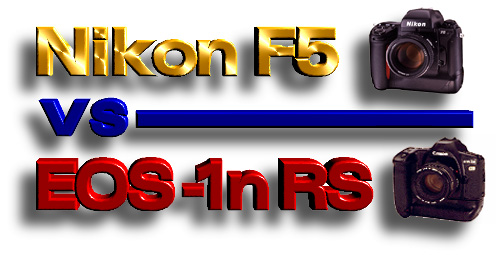ðH������geocities.com�������������������������������������������������������������������������������������������������������������������������������������������������������������������������������������������������������������������������������������������������������������������������������������������������������������������������������������������������������������������������������������������������������������������������������������������������������������������������������������������������������������������������������������������������������������������������������������������������������������������������������������������������������������������������������������������������������������������������������������������������������������������������������������������������������������������������������������������������������������������������������������������������������������������������������������������������������������������������������������������������������������������������������������������������������������������������������������������������������������������������������������������������������������������������������������������������������������������������������������������������������������������������������������������������������������������������������������������������������������������������������������������������������������������������������������������������������������������������������������������������������������������������������������������������������������������������������������������������������������������������������������������������������������������������������������������������������������������������������������������������������������������������������������������������������������������������������������������������������������������������������������������������������������������������������������������������������������������������������������������������������������������������������������������������������������������������������������������������������������������/SoHo/Gallery/3283//f5vs1nrs.html�����������������������������������������������������������������������������������������������������������������������������������������������������������������������������������������������������������������������������������������������������������������������������������������������������������������������������������������������������������������������������������������������������������������������������������������������������������������������������������������������������������������������������������������������������������������������������������������������������������������������������������������������������������������������������������������������������������������������������������������������������������������������������������������������������������������������������������������������������������������������������������������������������������������������������������������������������������������������������������������������������������������������������������������������������������������������������������������������������������������������������������������������������������������������������������������������������������������������������������������������������������������������������������������������������������������������������������������������������������������������������������������������������������������������������������������������������������������������������������������������������������������������������������������������������������������������������������������������������������������������������������������������������������������������������������������������������������������������������������������������������������������������������������������������������������������������������������������������������������������������������������������������������������������������������������������������������������������������������������������������������������������������������������������������������������������������������������������������geocities.com/SoHo/Gallery/3283_/f5vs1nrs.html�elayed�����������������������������������������������������������������������������������������������������������������������������������������������������������������������������������������������������������������������������������������������������������������������������������������������������������������������������������������������������������������������������������������������������������������������������������������������������������������������������������������������������������������������������������������������������������������������������������������������������������������������������������������������������������������������������������������������������������������������������������������������������������������������������������������������������������������������������������������������������������������������������������������������������������������������������������������������������������������������������������������������������������������������������������������������������������������������������������������������������������������������������������������������������������������������������������������������������������������������������������������������������������������������������������������������������������������������������������������������������������������������������������������������������������������������������������������������������������������������������������������������������������������������������������������������������������������������������������������������������������������������������������������������������������������������������������������������������������������������������������������������������������������������������������������������������������������������������������������������������������������������������������������������������������������������������������������������������������������������������������������������������������������������������������������������������������������������������������������������������������������������������������������������������������������������������������������������������������������������������������������������������������������������������������������������������������������������������������������������������������������������������������������������������������������������������������������������������������������������������������������������������������������������������������������������������������������������������������������������������������������������������������������������������������������������������������������������������������������������������������������������������������������������������������������������������������������������������������������������������������������������������������������������������������������������������������������������������������������������������������������������������������������������������������������������������������������������������������������������������������������������������������������������������������������������������������������������������������������������������������������������������������������������������������������������������������������������������������������������������������������������������������������������������������������������������������������������������������������������������������������������������������������������������������������������������������������������������������������������������������������������������������������������������������������������������������������������������������������������������������������������������������������������������������������������������������������������������������������������������������������������������������������������������������������������������������������������������������������������������������������������������������������������������������������������������������������������������������������������������������������������������������������������������������������������������������������������������������������������������������������������������������������������������������������������������������������������������������������������������������������������������������������������������������������������������������������������������������������������������������������������������������������������������������������������������������������������������������������������������������������������������������������������������������������������������������������������������������������������������������������������������������������������������������������������������������������������������������������������������������������������������������������������������������������������������������������������������������������������������������������������������������������������������������������������������������������������������������������������������������������������������������������������������������������������������������������������������������������������������������������������������������������������������������������������������������������������������������������������������������������������������������������������������������������������������������������������������������������������������������������������������������������������������������������������������������������������������������������������������������������������������������������������������������������������������������������������������������������������������������������������������������������������������������������������������������������������������������������������������������������������������������������������������������������������������������������������������������������������������������������������������������������������������������������������������������������������������������������������������������������������������������������������������������������������������������������������������������������������������������������������������������������������������������������������������������������������������������������������������������������������������������������������������������������������������������������������������������������������������������������������������������������������������������������������������������������������������������������������������������������������������������������������������������������������������������������������������������������������������������������������������������������������������������������������������������������������������������������������������������������������������������������������������������������������������������������������������������������������������������������������������������������������������������������������������������������������������������������������������������������������������������������������������������������������������������������������������������������������������������������������������������������������������������������������������������������������������������������������������������������������������������������������������������������������������������������������������������������������������������������������������������������������������������������������������������������������������������������������������������������������������������������������������������������������������������������������������������������������������������������������������������������������������������������������������������������������������������������������������������������������������������������������������������������������������������������������������������������������������������������������������������������������������������������������������������������������������������������������������������������������������������������������������������������������������������������������������������������������������������������������������������������������������������������������������������������������������������������������������������������������������������������������������������������������������������������������������������������������������������������������������������������������������������������������������������������������������������������������������������������������������������������������������������������������������������������������������������������������������������������������������������������������������������������������������������������������������������������������������������������������������������������������������������������������������������������������������������������������������������������������������������������������������������������������������������������������������������������������������������������������������������������������������������������������������������������������������������������������������������������������������������������������������������������������������������������������������������������������������������������������������������������������������������������������������������������������������������������������������������������������������������������������������������������������������������������������������������������������������������������������������������������������������������������������������������������������������������������������������������������������������������������������������������������������������������������������������������������������������������������������������������������������������������������������������������������������������������������������������������������������������������������������������������������������������������������������������������������������������������������������������������������������������������������������������������������������������������������������������������������������������������������������������������������������������������������������������������������������������������������������������������������������������������������������������������������������������������������������������������������������������������������������������������������������������������������������������������������������������������������������������������������������������������������������������������������������������������������������������������������������������������������������������������������������������������������������������������������������������������������������������������������������������������������������������������������������������������������������������������������������������������������������������������������������������������������������������������������������������������������������������������������������������������������������������������������������������������������������������������������������������������������������������������������������������������������������������������������������������������������������������������������������������������������������������������������������������������������������������������������������������������������������������������������������������������������������������������������������������������������������������������������������������������������������������������������������x����mÔJ����ÿÿÿÿ������������ÿÿÿÿÿÿÿÿÿÿÿÿÿÿÿÿÈ��������������������������������+Æ���������������������š�������OK������������������������������������������������������������������������������text/html���������������������������������������������������������������������������������������������������������������������������������������������������������������������������������������`4h�����š�����������ÿÿÿÿ����b‰.H��������������������������������������������������������������������������������������������������������������������������������������������������������Fri, 24 Apr 1998 00:07:29 GMT���������������������������������������������������������������������������������������������������������������������������������������������������������������������������������������������������������������������������������������������������������������������������������������������������������������������������������������������������������������������������«���������������Mozilla/4.5 (compatible; HTTrack 3.0x; Windows 98)��������������������������������������������������������������������������������������������������������������������������������������������������������������������������������������������������������������������������������������������������������������������������������������������������������������������������������������������������������������������������������������������������������������������������������������������������������������������������������������������������������������������������������������������������������������������������������������������������������������en, *��������������������������������������������������������������������������������������������������������������������������������������������������������������������������������������������������������������������������������������������������������������������������������������������������������������������������������������������������������������������������������������������������������������������������������������������������������������������������������������������������������������������������������������������������������������������������������������������������������������������������������������������������������������������������������������������������������������������������������������������������������������������������������������������������������������������������������������������������������������������������������������������������������������������������������������������������������������������������������������������������������������������������������������������������������������������������������������������������������������������������������������������������������������������������������������������������������������������������������������������������������������������������������������������������������������������������������������������������������������������������������������������������������������������mÔJ��������������������������������������������������������������������������������������������������������������������������������������������������������������������������������������������������������������������������������������������������������������������������������������������������������������������š�������
F5 vs 1n RS


My basic opinion of the EOS-1N RS is that it is the 2nd best AF camera (Nikon F5 being the best AF) and 1st best Manual Focus sports camera.
The EOS-1N RS pellicle mirror is stronger than most mirror systems because less moving parts.
There are two disadvantages:
1st the Rs has a dimmer viewfinder than the Eos-1n.
2nd less light reaches film because of the pellicle mirror system.
I can't tell you how much of a loss this is.
I rate it second best in AF because it can't track at 10 frames per second.
The RS can track at 4.7 fps.
EOS-1N with Power Drive Booster E1 can track at 5 fps.
The F5 tracks at 8fps.
The reasons for the RS is the best manual foucus sports camera is simple the 10 fps and no mirror flap.
Over a great camera and well made. it is very durrable but not as strong as a nikon F5.
But I'm bias on this point.
A good mag to look at on this the Petersen's Photographic March 1998.
My personal feeling is that it is a good camera and would be my second choice in cameras.
My personal feeling is look for an update on this camera in the next year or two.
I feel they rushed it out of R&D to ambush the F5.
My guess is you will see it track at 10fps.
Here is an Email I sent to Petersen's Photographic and there response you might find it interesting.


To The Editors of Petersen's Photographic:I shoot for a small daily paper, and use the F5 daily. I have used it for
NFL games as well daily news assignments. The F5 was one of the best
investments I made in my gear, and I would not change to the Canon system.
Although the tests between the Eos-1n and the F5 were accurate, I do not
believe it was a good comparison. In my opinion the F5 should have been
compared with the Eos-1n RS. The specifications of Eos-1n RS more closely
match the F5. In sports, news, or even wildlife photography were speed
and action is a major priority then Eos-1n RS is better camera than
Eos-1n. The Eos-1n RS has 10 frames per second and no viewfinder
blackout, thanks to the pellicle mirror. I have seen more sports
photographers and news photographers using the Eos-1n RS than the Eos-1n.
I would have interested in seeing a comparison between the F5 and the
Eos-1n RS in AF tracking. I would have like to see how well the Eos-1n RS
firing at 10 frames per seconded maintained its tracking.
Finally, the costs of the Eos-1n RS ($2499 street price) more closely
matches the F5 ($2795 street price).
In my opinion the F5 Eos-1n RS match up would have been more informative.
Sincerely,
R.F.B.


Thanks for your comments--they are well taken. You are correct that in terms of
drive speed and price, the EOS-1N RS is a closer match for the F5, and as a
matter of fact, that was our original choice. On giving it more thought,
however, we chose the standard EOS-1N because it's better suited for overall
shooting than the specialized RS model--the RS has a dimmer viewfinder image,
and the mirror cuts down light transmitted to the film, in effect decreasing
film speed. Also, surprisingly enough, the RS offers predictive AF only at its
4.7 fps advance rate with (single-shot AF and manual-focus at 10 fps), while the
standard EOS-1N with Power Drive Booster E1 offers predictive AF at 5 fps (still
much slower than the F5's 8 fps).
In other words, the F5 would have outscored the RS by a wider margin than the
standard EOS-1N for most shooting.
Also, we erroneously stated that the multi-segment metering on the F5 uses an
eight-segment system (that's what the N90S uses), whereas it actually uses a
1005-pixel system.


This page hosted by  Get your own Free Home Page
Get your own Free Home Page








